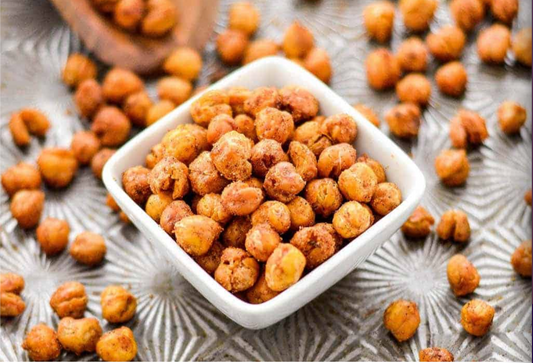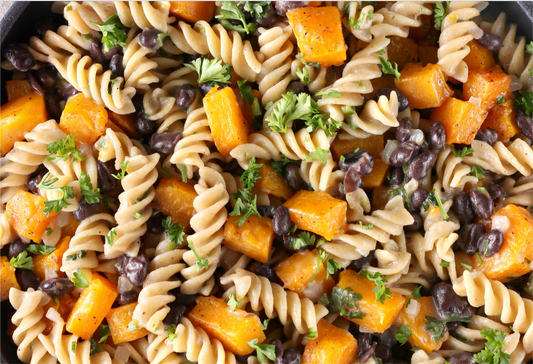Stress. A word that sounds scary, and something most of us do anything to avoid. That’s right, but we should know that stress has been part of our life since day one, and it’s our body’s ability to react to any change. Our bodies may experience stress in positive situations as well as in negative situations - against unwanted and negative perceived changes. Positive stress prepares us for danger by keeping us motivated and alert. However, negative stress is perceived when there are any continuous or constant states of stress and no relief or time to relax to deal with it.
The human body responds to stress physically and mentally - or both. Positive stress, also named 'eustress' - is a form of stress that provides beneficial effects on health, motivation, performance and well-being- such as starting a new job, receiving promotion at work, moving into a new home, getting married etc.
Distress is the type of stress we are referring to when we say “stress” and it’s the form with negative implications. Examples of negative stress are anything that brings extreme fear and anxiety - death of a significant person, financial challenges, injury, unemployment, being fired at work- that causes us to be unhealthy mentally and / or physically.
Constant negative stress leads to release of high levels of stress hormones which have major and significant effects on our health and wellbeing. Cortisol is the hormone secreted from our brain (hypothalamic-pituitary-adrenal axis). High levels of cortisol in the body increases sugar in our bloodstream and that’s a life saver adaptation since we need glucose to run away from danger or need to use our brain to think faster. At the state of high stress and high cortisol levels we’re more prone to get sick because our immune system is suppressed. As well as the immune system, chronic stress has side effects to our digestive system, cardiovascular system, sleeping quality, endocrine system, muscular system etc.
Also, chronic stress may effect our brain region which is involved in the stress / motivation circuit aka reward pathway. This adaptation may increase the body’s sensitivity to become rewarded through changing food preferences and seeking hyperpalatable foods.
How to manage stress?
1- Exercise - Exercising reduces cortisol levels and stimulates the production of endorphins - which is considered as the body's natural pain killer. Exercising and participating in sports like activities is an awesome opportunity to get away from the stressful events in your life and enjoy. You don’t have to give all you have and show an extreme effort, any exercise works - yoga, walking, jogging etc.
2- Focus on your food quality - The quality of nourishment - nutrients in diet- has an impact on proper functioning of the body. Implementation of lifestyle approaches and dietary habits is an extremely powerful way to reduce stress levels. If we can naturally lower the inflammation in the body and decrease the stress, cortisol levels should be reduced. It results with decreased chronic disease risk and improved wellness. Following a low-inflammatory diet and maximizing the anti-inflammatory foods while minimizing the pro-inflammatory ones would be the best approach to do that.
Dietary factors significantly contribute to inflammation: Caffeine, alcohol, high glycemic load, saturated and trans fats, low-fiber diet intake, inadequate micronutrients-antioxidants.
Stress is an important factor in the development of addiction to hyperpalatable (e.g., high-fat, high sugar) foods. While you’re under stress eliminate caffeine and alcohol consumption as much as possible. Because they both act as a stimulant, causing the adrenal glands to release more stress hormones - cortisol. Excess consumption of high sugar foods causes unstable blood sugar levels that is accepted as "stress” by our body and cortisol will be released to deal with that situation. So rather than going with ultra-processed foods incorporate more whole foods into your diet to fight with the inflammation in the body.
To minimize inflammation
1) Choose low glycemic load foods
2) Eliminate trans fats & lower saturated fat intake
3) Reduce/eliminate alcohol
4) Increase vegetables, fruits, whole grains, nuts / seeds, and beans
5) Increase fatty fish consumption & Omega-3 supplementation
6) Reduce caffeine intake
Some other tips:
1- Have a Mindful Moment -Be present. Take a step back, focus on your breathing and slow down. Spend some time in the moment and realize your senses- what you hear, feel, smell, see…
2- Come together - Call and talk with your loved ones, family or friends. Talking with them and getting their support can help lower your stress. Self talk or journaling is also another way to reduce stress but make sure that you’re making it with a positive manner, without being hard on yourself.
3- Save time for your hobbies - At least have 15-20 minutes a day to do what makes you happy and you enjoy mostly. It can be reading, playing board games, playing cards, painting, drawing…
4- Identify your stressors - Recognize your biggest stress trigger(s) in your life and if you can, try to eliminate them. Sometimes our job and main duties are the main stress source in our lives and it’s not possible to eliminate them. So prioritize your mental and physical health and follow the recommendations we have provided below.
As Team BODZii we believe health is whole. We’re following a holistic approach and are aware of many factors - sleep, hydration, nutrition, stress, physical activity etc.- should be addressed while talking about health and wellness. If you want to get in touch and know more about our Lifestyle coaching goals or chat about your health goals, book a call with us to find a way.
To get started, download our free 5 Healthy Days of Quarantine Guide!




